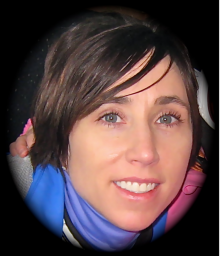
The chiropractic landscape in Colorado is currently navigating through a maze of controversies, prominently featuring Dr. Jill Hutter, President of the Colorado Board of Chiropractic Examiners. Hutter's professional claims, including her membership in the American Academy of Chiropractic Physicians (now known as AAPCM) and her attainment of an AP-C degree from New Mexico, are under intense scrutiny following revelations from open records requests in New Mexico and Colorado.
CLICK HERE to view claim on her website.
Critically, these documents unravel a series of concerning findings:
Dr. Hutter's Non-Disclosures
Despite her advertising on her website that she is a member of the AAPCM and that she holds an Advanced Practice License, Dr. Hutter failed to disclose her membership in the AAPCM and her APC degree to the Governors office in her application materials. This omission raises significant questions about transparency and integrity, pivotal qualities for a member of a regulatory board - especially its President.
CLICK HERE for her application materials to Colorado Board
CLICK HERE for New Mexico Records
In Hutter's submission to the governor's office for her appointment to the Colorado Board of Chiropractic Examiners, significant omissions were noted. Notably absent from her resume were her APC degree and her membership in the AAPCM. These omissions are particularly striking given the relevance of these credentials to her role and responsibilities on the board. This lack of disclosure raises questions about transparency and completeness of the information provided during her appointment process, casting a shadow on the integrity of the board's composition and decision-making process.
History
The Academy of Advanced Practice Chiropractic Medicine (AAPCM), formerly known as the American Academy of Chiropractic Physicians, was shaped significantly by Dr. Reimer Kremer and Dr. James Winterstein. Their vision was to tier chiropractic into two branches: One that practices medicine and the other that focuses on the management of vertebral subluxation. The APC degree and related training programs were created to accomplish those goals. Understanding the history and intentions of the AAPCM founders is crucial, as it contextualizes the potential conflicts of interest regarding Dr. Hutter's undisclosed membership and APC credentials, suggesting alignment with an allopathic approach within chiropractic regulation.
Michael Simone's Influence
Dr. Hutter's association with Michael Simone was disclosed on her application to the Governor's office. Simone is a former ACA District 6 Governor and Past President of the ACA, known for his advocacies that starkly contrast with traditional chiropractic practices. Simone's history of membership in the West Hartford Group (an anti-subluxation special interest group) and his denouncement of vitalism and spinal subluxation in chiropractic teachings align with a faction within the chiropractic community pushing for a profound shift in the profession's focus.
Questionable APC "Certification"
The legitimacy of the APC certification process is under fire in New Mexico. Lack of substantial documentation, lack of clarity about the examination process, and the accreditation status of the course raise doubts about the credibility of the APC credential boasted by Dr. Hutter on her website.
ACA Dominance and Potential Conflicts
The composition of the Colorado Board, with several of its chiropractor members affiliated with the American Chiropractic Association (ACA),including Hutter who is an ACA Member according to her resume. It also, includes figures like Simone advocating for scope expansion and drug prescription rights, poses potential conflicts of interest. This alignment could influence the board's decision-making, potentially sidelining traditional chiropractic tenets.
As the Colorado Board recently decided to retain CCE language in chiropractic regulations, the intertwined relationships of board members, their undisclosed affiliations, and the controversial stances of prominent figures like Simone demand a thorough examination. The chiropractic community, stakeholders, and the public must champion for transparency and accountability. It is imperative to ensure that the board's decisions reflect the profession's integrity and are made in the best interest of public health and the chiropractic community's diverse practices.
In light of these revelations, the chiropractic community is called upon to scrutinize, question, and demand clarity and fairness in the governance and representation of their profession. The path forward must be paved with transparency, inclusivity, and a commitment to upholding the core values of chiropractic care.
